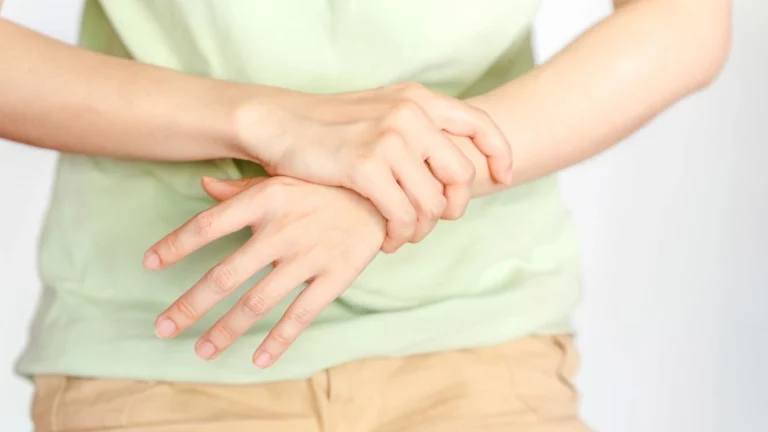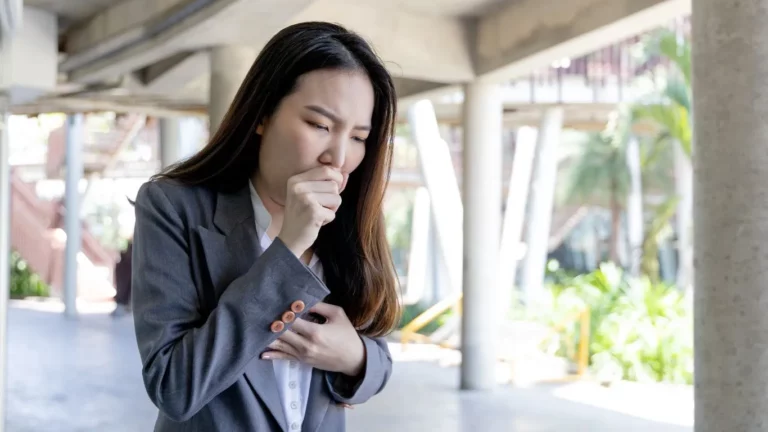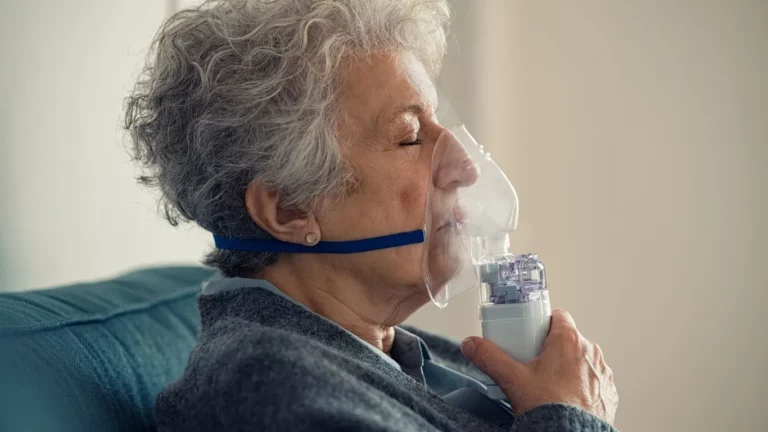Boost Your Energy with These 5 GERD Solutions
Living with GERD can be a real challenge, and if you’ve been dealing with this digestive condition for a while, you know how it can impact more than just your stomach. It doesn’t just cause discomfort; it can affect other aspects of your life, especially your energy levels. How GERD impacts energy levels is something I’ve seen firsthand in my work, and it’s more than just a feeling of being tired—it can be a constant struggle. Whether it’s poor sleep, fatigue after meals, or just the toll it takes on your body over time, the connection between GERD and low energy is a real concern. But don’t worry! In this article, we’ll take a deep dive into how GERD affects your energy levels, how to recognize the signs, and what you can do to manage it.
Understanding GERD and Its Impact on Your Body
Gastroesophageal reflux disease (GERD) is a chronic condition where stomach acid or bile irritates the food pipe lining. It’s often triggered by certain foods, stress, or even lying down too soon after meals. But the digestive struggle doesn’t stop at heartburn or regurgitation. As someone who specializes in digestive health, I’ve witnessed how GERD can sneak up on you in ways you might not expect. You’d think it’s just about digestion, but it often spills over into your energy levels.
The body’s constant battle against acid reflux takes a toll. If you’re constantly fighting that discomfort, it can be hard to muster up enough energy to get through the day. GERD can also disrupt your sleep, leading to a vicious cycle of feeling tired during the day, which only worsens the condition. Plus, the stress of managing GERD symptoms often exacerbates fatigue. But how exactly does GERD affect your energy? Let’s break it down.
How GERD Can Interrupt Your Sleep

Let’s start with something many GERD sufferers are familiar with: sleep problems. GERD can interfere with your sleep in multiple ways, primarily because lying down too soon after eating or drinking can allow stomach acid to move up into your esophagus, triggering heartburn or other uncomfortable symptoms. That’s why I always advise my clients to avoid eating too close to bedtime.
Now, here’s the thing I’ve noticed in my work: sleep deprivation from GERD isn’t just about the number of hours you get. Even if you manage to sleep for 7–8 hours, the quality of that sleep matters a lot. GERD can cause you to wake up frequently during the night, making it harder for your body to go through its natural restorative processes. This results in a lack of deep sleep, which leaves you feeling drained the next day. You might find yourself relying on caffeine or sugary snacks to power through your day, which can make the problem worse in the long run.
Low Energy Due to Inflammation
One of the less-discussed side effects of GERD is inflammation. When stomach acid repeatedly irritates the esophagus, it can create a chronic state of inflammation in your body. This inflammation doesn’t just stay localized; it can spread and affect your overall energy levels. In fact, persistent inflammation is one of the reasons many GERD sufferers experience ongoing fatigue.
As a GERD expert, I’ve seen how this lingering inflammation can feel like a weight dragging you down. You may not realize it, but your body is working overtime to manage this irritation, diverting energy away from other functions that keep you feeling alert and active. This constant internal struggle can lead to exhaustion, especially if your body is already stressed out from managing your digestive issues.
Recognizing the Symptoms of Low Energy from GERD
If you’re wondering whether GERD is affecting your energy levels, here are a few signs to look out for:
- Fatigue after meals: Do you feel like you could use a nap after every meal, even if you’ve eaten a balanced diet? This could be a sign that your digestive system is working harder than usual.
- Frequent wake-ups at night: If you’re constantly waking up in the middle of the night or early in the morning with discomfort, your sleep might be suffering more than you realize.
- Lack of motivation: Feeling sluggish, uninspired, or just not “in the mood” to do anything can also be linked to energy depletion caused by GERD-related discomfort.
- Reliance on caffeine or sugar: While a cup of coffee here and there might be fine, relying heavily on stimulants to get through the day could indicate that your energy levels are out of whack due to GERD.
It’s important to note that GERD’s effect on energy levels isn’t just about physical exhaustion. Mental fatigue is a big player too. When you’re constantly dealing with discomfort, it’s hard to stay focused or motivated. The mental load of managing your condition—whether it’s adjusting your diet or dealing with flare-ups—can leave you mentally drained, further compounding the feeling of low energy.
How Stress from GERD Contributes to Low Energy

We can’t talk about GERD and energy without touching on the role of stress. GERD is known to cause significant stress, and not just because of the physical symptoms. The unpredictability of flare-ups, the fear of certain foods triggering discomfort, and the constant vigilance required to manage the condition can wear you down mentally. This stress only exacerbates feelings of fatigue.
In my experience, managing stress is key to tackling low energy levels caused by GERD. When you’re constantly stressed, your body is in a state of heightened alertness, which uses up more energy. Stress hormones like cortisol can also interfere with sleep and digestion, making everything feel like a vicious cycle. The more stressed you get about your GERD, the worse your energy levels become. So, if you’re dealing with GERD and energy issues, stress management is just as important as dietary changes.
How to Improve Energy Levels While Managing GERD
Now that we’ve established how GERD affects your energy levels, let’s dive into how we can tackle this issue. Trust me, I know how frustrating it can be to feel drained, not just because of the symptoms of GERD but because your body is working overtime in other ways. The good news is that with the right approach, you can improve your energy levels while keeping your GERD under control. In this section, I’ll share some strategies that have worked for many of my clients and some I’ve used myself.
1. Adjust Your Diet to Minimize GERD Symptoms

If there’s one thing I’ve seen time and time again, it’s that diet plays a huge role in managing GERD and maintaining energy. You don’t have to completely overhaul your eating habits, but making a few key changes can work wonders. For example, avoid triggering foods that can cause acid reflux, like spicy dishes, fatty foods, caffeine, and citrus fruits. These foods can not only worsen your GERD symptoms but also lead to that post-meal slump that leaves you feeling drained.
Instead, opt for GERD-friendly foods that are gentle on the stomach but also packed with nutrients to help maintain your energy levels. Here are a few foods to incorporate into your meals:
- Oatmeal: A great breakfast option that’s gentle on your digestive system and can keep you feeling full for longer.
- Lean proteins: Chicken, turkey, or plant-based proteins provide the energy your body needs without adding to the GERD stress.
- Green vegetables: Vegetables like spinach, broccoli, and kale are full of vitamins and low in acid.
- Ginger: This natural anti-inflammatory can help soothe your digestive system and reduce GERD flare-ups.
In my experience, balancing meals with the right mix of protein, fiber, and healthy fats can not only support your digestive health but keep you energized throughout the day. Eating smaller, more frequent meals also helps, as large meals can exacerbate GERD symptoms.
2. Stay Hydrated, But Be Mindful
Dehydration can be a hidden culprit behind low energy levels, especially if you’re managing a condition like GERD. I’ve seen many people overlook the importance of hydration, thinking that simply drinking water won’t help with their GERD. While it’s true that drinking too much water with a meal might worsen acid reflux, staying hydrated throughout the day can help your body function better and, by extension, boost your energy.
The trick is to sip water throughout the day, rather than consuming large amounts at once. And be careful with carbonated beverages, which can increase bloating and discomfort. Herbal teas, especially those with ginger or chamomile, are great choices that can aid digestion while keeping you hydrated.
3. Incorporate Gentle Exercise Into Your Routine
If you’re like me, you might think that exercise would be the last thing on your mind when you’re dealing with GERD. But let me tell you, gentle exercise can actually help improve your energy levels and support your digestion. Walking, swimming, or light yoga are all excellent options to get your body moving without triggering GERD flare-ups.
Exercise helps boost circulation, which in turn promotes energy. It also reduces stress, which, as we know, plays a big role in both GERD and fatigue. I’ve seen clients who started taking daily walks report feeling much better—not only in terms of managing their GERD but also in how much more energized they felt throughout the day.
4. Master Stress-Relief Techniques

As we’ve touched on earlier, stress can make GERD symptoms worse, and in turn, GERD can lead to more stress. It’s a never-ending cycle, but managing your stress can help break it. Personally, I can vouch for the power of meditation, deep breathing exercises, and mindfulness techniques. I know it sounds cliché, but these practices can have a profound impact on how your body deals with both GERD and fatigue.
Something as simple as taking 10 minutes in the morning to focus on your breath or listening to calming music can make a world of difference. For some of my clients, taking regular breaks during the workday to stretch or practice deep breathing has been a game-changer. Even just taking a moment to check in with your body and mind can help reduce the mental load that comes with GERD and improve your energy levels.
Managing GERD Through Lifestyle Changes
When it comes to managing GERD, sometimes lifestyle changes are just as important as medication. Over the years, I’ve worked with many people who’ve found success by making small adjustments in their day-to-day routines. Here are a few tips to help you manage your GERD and keep your energy up:
- Elevate your head while sleeping: Sleeping with your head slightly raised can prevent stomach acid from traveling back into your esophagus, reducing nighttime GERD symptoms and improving sleep quality.
- Avoid eating right before bed: Give yourself at least 2-3 hours between your last meal and bedtime to help with digestion and prevent nighttime reflux.
- Lose weight if needed: If you’re carrying extra weight, losing even a small amount can reduce pressure on your stomach and lessen GERD symptoms.
- Quit smoking: Smoking can weaken the lower esophageal sphincter, which leads to acid reflux. Quitting can help improve both GERD symptoms and your overall energy levels.
These lifestyle changes may seem small, but over time they can make a significant difference in how you feel. It’s all about finding a routine that works for you and staying consistent. Remember, managing GERD doesn’t happen overnight, but with patience and persistence, you’ll start to notice improvements in both your symptoms and your energy levels.
Conclusion: Finding Balance and Regaining Your Energy
Managing GERD is a journey, and it can be tough, especially when it affects your energy levels. But with the right tools—whether that’s adjusting your diet, staying hydrated, incorporating gentle exercise, or managing your stress—you can regain control over your energy and live life to the fullest. Don’t forget, it’s all about finding what works best for your body, and being patient with the process.
As someone who’s worked closely with many individuals living with GERD, I can assure you that it is possible to feel better and reclaim your energy. Take it one step at a time, and remember that every small change can have a big impact. Here’s to feeling energized, empowered, and in control of your health again!
Case Studies & Real-Life Examples
Sometimes, the best way to understand how GERD impacts energy levels is to hear real-life stories. In my years as a GERD expert, I’ve worked with so many individuals who’ve shared their journeys with me. One of the most impactful stories I remember is that of Sarah, a 38-year-old mother of two who struggled with GERD for years. She came to me feeling exhausted, constantly fatigued, and almost defeated by the condition. Her GERD symptoms, including frequent acid reflux, disrupted her sleep, and despite trying several medications, she couldn’t seem to get a handle on her energy levels.
After we worked together on a comprehensive plan—including dietary changes, stress reduction techniques, and incorporating light exercise into her routine—Sarah began to notice a shift. Her sleep quality improved, and she had more energy during the day, even with the demands of being a busy mom. It wasn’t an overnight transformation, but over the course of a few months, she told me that she felt like a “new person.” The key was balancing her GERD management with a lifestyle that supported better energy levels, and that’s something I’ve seen work for many others, too.
Another example is Mike, a 55-year-old office worker who had been living with GERD for a decade. Like many, he was skeptical about how making small changes could truly affect his energy levels. However, after focusing on his diet, cutting out trigger foods like caffeine, and making time for a daily 20-minute walk, Mike found that he felt far more energized and less mentally drained. He said, “I used to struggle to get through the workday without feeling like I needed a nap, but now I feel more alert, and I don’t even need that afternoon coffee anymore.” His case is a reminder that even modest lifestyle shifts can yield significant results when it comes to both managing GERD and regaining energy.
Key Takeaways: What You Need to Remember
As we wrap up this article, let’s go over the key takeaways to keep in mind when it comes to managing GERD and improving energy levels:
- GERD isn’t just about heartburn: It can also impact your energy levels, affecting your sleep quality, leading to fatigue, and causing mental exhaustion.
- Diet matters: Adjusting your meals to include GERD-friendly foods while avoiding triggers can significantly improve both your symptoms and energy.
- Hydration and gentle exercise are essential: Staying hydrated and incorporating light, regular exercise can help boost your energy and reduce GERD symptoms.
- Stress management is key: Managing stress through techniques like meditation, deep breathing, or yoga is vital in preventing GERD flare-ups and maintaining energy.
- Lifestyle adjustments make a big difference: Small changes, such as sleeping with your head elevated or quitting smoking, can help reduce GERD symptoms and improve overall well-being.
Remember, everyone’s journey with GERD is unique. What works for one person may not work for another, so be patient with yourself. The goal is to find the balance that works best for your body and your lifestyle. It may take time, but with the right approach, you can regain your energy and live a healthier, more vibrant life.
5 FAQs About GERD and Energy Levels
As we’ve discussed, GERD and energy levels are closely linked, but I know you might still have some questions. Below, I’ve answered some of the most common questions I get asked when it comes to this topic:
- Can GERD make you feel constantly tired?
Yes, GERD can lead to chronic fatigue, especially if it disrupts your sleep or causes ongoing inflammation. Managing GERD symptoms can help improve your energy. - Is it possible to improve energy levels without medication?
Absolutely! Diet changes, hydration, exercise, and stress management can all help reduce GERD symptoms and boost energy without relying solely on medications. - How long does it take to see improvements in energy levels after changing my diet?
It can vary, but many people begin to notice improvements within a few weeks of making dietary changes. It’s important to be consistent and patient. - Does drinking coffee worsen GERD and cause tiredness?
Caffeine can be a GERD trigger for many people, and it can also disrupt sleep, which contributes to fatigue. Cutting back or eliminating caffeine can help both GERD and your energy levels. - Can exercise make my GERD worse?
Not if done correctly. Gentle exercises like walking or yoga are beneficial, but high-intensity workouts or lying down too soon after eating can aggravate GERD symptoms. Always listen to your body!
Bonus: Additional Resources or DIY Tips
If you’re looking for more ways to manage GERD while boosting your energy levels, here are a few additional resources and DIY tips:
- Try herbal teas: Peppermint and chamomile teas can help soothe your digestive system and promote relaxation. They’re great before bed to improve sleep quality.
- Essential oils for stress relief: Lavender and eucalyptus essential oils are known to help reduce stress and anxiety, which can improve GERD symptoms and overall energy.
- Join a support group: Connecting with others who are managing GERD can provide valuable insights and emotional support as you work on improving your energy levels.
Appendix: References, Disclaimer, and Call to Action
References: For further reading, check out the following resources on GERD management and energy-boosting tips:
Disclaimer: The information provided in this article is not intended to replace professional medical advice. Always consult with a healthcare provider for personalized recommendations based on your individual needs.
Call to Action: Are you ready to take control of your GERD and energy levels? Start by making one small change today—whether it’s adjusting your diet, incorporating exercise, or practicing stress management. You’ve got this! And if you need guidance, don’t hesitate to reach out to a healthcare professional or join a community of support to stay on track.

Camellia Wulansari is a dedicated Medical Assistant at a local clinic and a passionate health writer at Healthusias.com. With years of hands-on experience in patient care and a deep interest in preventive medicine, she bridges the gap between clinical knowledge and accessible health information. Camellia specializes in writing about digestive health, chronic conditions like GERD and hypertension, respiratory issues, and autoimmune diseases, aiming to empower readers with practical, easy-to-understand insights. When she’s not assisting patients or writing, you’ll find her enjoying quiet mornings with coffee and a medical journal in hand—or jamming to her favorite metal band, Lamb of God.







